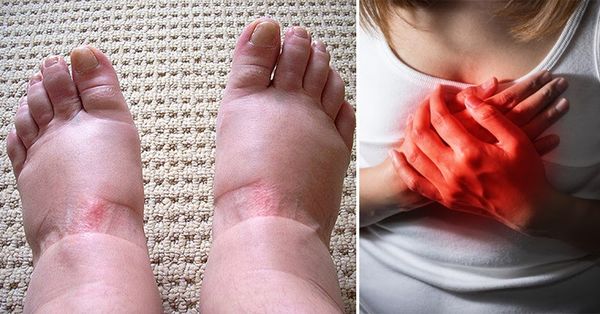
Swollen feet can occur for various reasons, not just due to pregnancy, injury, or standing for long hours. While most cases of swelling can be resolved by resting or soaking the feet, sudden and unexplained swelling may indicate an underlying issue that requires medical attention.
Causes of Swollen Feet
Deep Vein Thrombosis (DVT)
Deep vein thrombosis is a condition where a blood clot forms in the deep veins, mostly in the legs. Aside from swelling, you may experience heaviness and clearer veins in the legs. DVT is risky because it can block blood flow to the lungs, leading to a pulmonary embolism.
Achilles Tendonitis
The Achilles tendon, the strongest tendon in the body, can sometimes cause pain and difficulty moving when inflamed. Swelling in the ankles and heels, especially after physical activities, can indicate Achilles tendonitis.
Osteoarthritis
The most common type of arthritis, osteoarthritis can cause pain, soreness, stiffness, and swelling in the feet. Engaging in activities like yoga can help alleviate the pain associated with this condition.
Heart Failure
Heart failure can manifest in subtle ways, and one of them is swelling in the feet. When the heart doesn’t function properly, fluid buildup, or edema, can occur, leading to swelling in the legs, feet, or ankles.
Lymphedema
Lymphedema occurs when excess lymphatic fluid accumulates in the arms or legs, causing swelling. If you experience sudden or severe swelling, it is advisable to seek immediate medical attention.
Cellulitis
Cellulitis is characterized by swollen and hot-to-the-touch skin, often caused by poor blood flow in the lymphatic system. Though it can affect any part of the body, it typically affects the lower legs.
Gout
Gout is a form of arthritis caused by high levels of uric acid in the body. It is extremely painful and usually appears suddenly, particularly at night. Swelling, redness, and tenderness in the inner joints of the big toe are common signs of gout.
Bursitis
Bursitis is the inflammation of small fluid-filled sacs that protect bones, muscles, and tendons. While it commonly affects the shoulders, hips, and elbows, it can also impact the knees, heels, and big toes. Foot bursitis can cause pain, stiffness, redness, and swelling.
Rheumatoid Arthritis
Rheumatoid arthritis often starts in the feet and can present differently in each person. Swollen and painful joints, as well as severe swelling, are common symptoms. The disease may also cause swollen tendons and muscles due to nodules under the skin.
If you suspect that your feet are swollen and it could be a sign of a health issue, it is crucial to consult a medical professional. Your well-being is important, so please share this information with your friends and family who may find it helpful.



